Nestled at the heart of Central Asia, Uzbekistan emerges as a land woven with rich threads of history, culture, and stunning architecture, drawing travellers from across the globe. This country, once a pivotal crossroad on the ancient Silk Road, beckons with its intricately decorated mosques, bustling bazaars, and cities that narrate tales of a glorious past through every minaret and mausoleum.
For residents of the United Arab Emirates, Uzbekistan offers a unique travel destination that is both accessible and steeped in a history vastly different from the modern skylines of Dubai or Abu Dhabi. The contrast between the UAE’s futuristic cities and Uzbekistan’s historical treasures provides a rich, educational, and visually stunning experience. Additionally, the direct flights from Dubai, Sharjah or Abu Dhabi to Tashkent or Samarkand, which take just over three hours, make Uzbekistan an enticing option for those looking to explore new cultures without the commitment of long-haul travel.
In this blog post, I will share essential travel tips, cultural insights, and the best experiences to help you plan an unforgettable journey from the UAE to this enchanting land. Join me as we discover why Uzbekistan should be your next travel destination.
Cultural Insights: People, Culture, and History of Uzbekistan
Historical Significance of Tashkent and Samarkand
Tashkent, the capital, though modernized, is home to a rich tapestry of history. Notably, it is a city reborn from the ruins of the 1966 earthquake and has ancient roots dating back over 2,200 years. Visitors can explore the old part of the city, where traditional homes and religious schools known as Madarasas provide a glimpse into the Uzbek culture untouched by time.
Samarkand is arguably one of the most famous cities in Central Asia, often referred to as the “Jewel of the Silk Road.” It is renowned for its Islamic architecture with monuments like Registan Square, Bibi-Khanym Mosque, and the Shah-i-Zinda, which tell tales of its storied past and Timur’s legacy. This city has been a center of world culture for centuries, a place where scholars, craftsmen, and traders once gathered.
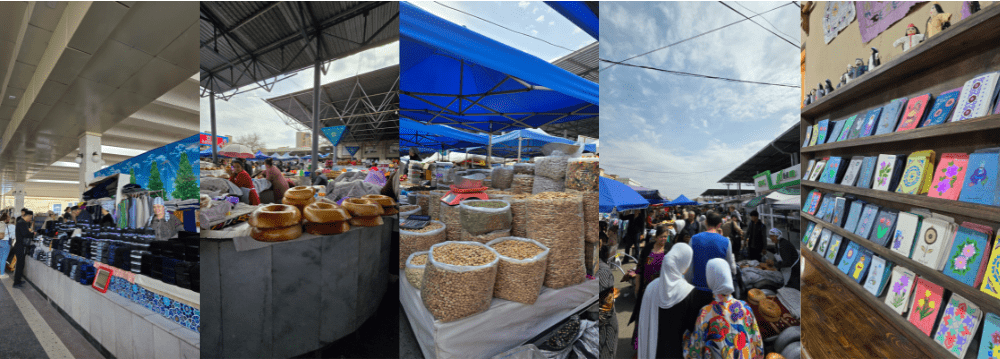
Cultural Norms and Etiquette Tips for Travelers
Understanding and respecting local customs is crucial when visiting Uzbekistan. Here are a few cultural norms and etiquette tips to help travellers navigate social situations:
Dress Conservatively: Especially when visiting religious sites, it is respectful to wear modest clothing covering shoulders and knees. Women may choose to carry a scarf to cover their heads when entering mosques.
Greeting Etiquette: A handshake is common when meeting someone, but always wait to see if a woman extends her hand first. Another common greeting involves placing your hand over your heart and nodding slightly.
Hospitality: Uzbeks are incredibly hospitable. It is common to be invited into a local’s home for tea or a meal. Always accept the offer of tea, even if you do not drink it, as it’s a sign of respect and friendship.
Shoes Off: Remember to remove your shoes when entering someone’s home. This is a sign of respect and is practiced across many Central Asian cultures.
Tipping: Tipping is not traditionally expected but is increasingly appreciated in tourist areas. In restaurants, rounding up the bill or leaving a small tip is becoming more common.
Photography: Always ask for permission before taking photos of people, especially in more conservative regions. Some cultural sites may charge a fee for photography.
Bargaining: In bazaars and markets, bargaining is expected. Start at about half the asking price and negotiate with a smile. It’s a part of the shopping experience in Uzbekistan.
Why Visit Uzbekistan from the United Arab Emirates?
Visiting Uzbekistan provides an intriguing contrast to the UAE’s ultramodern cities like Dubai and Abu Dhabi. While the Emirates showcases towering skyscrapers and futuristic technology, Uzbekistan offers a journey back in time. Here, history is palpable in every corner, from the ancient city walls of Khiva to the regal mausoleums of Samarkand. This juxtaposition between the new and the old enriches the travel experience, offering a deeper appreciation of how historical contexts shape different cultures.
These factors make Uzbekistan not just a vacation spot but a portal to understanding the complexities of Central Asian history and its relationship with the modern Arab world. Whether it’s for the ease of travel or the enriching cultural immersion, Uzbekistan stands out as a compelling destination for travellers from the United Arab Emirates.
Planning Your Trip to Uzbekistan from UAE
Visa Requirements for UAE Residents
Travelling from the United Arab Emirates to Uzbekistan has been simplified significantly in recent years, especially when it comes to visa requirements. Here’s a step-by-step guide to help UAE residents understand and navigate the process of obtaining a visa for Uzbekistan.
Step-by-Step Guide on Obtaining a Visa for Uzbekistan
Check Visa Requirements: As of recent updates, UAE citizens can enjoy visa-free entry into Uzbekistan for stays of up to 30 days. This visa exemption makes it extremely convenient for UAE residents to plan a trip.
Prepare for Your Trip: Although a visa may not be required, travellers should ensure their passport is valid for at least six months from the date of entry into Uzbekistan. It’s also a good practice to have proof of onward travel and sufficient funds for the duration of the stay.
Consider Extended Stays: If you plan to stay longer than 30 days or your travel purpose doesn’t fit the visa-free criteria (such as work or longer-term studies), you will need to apply for the appropriate visa. This can be done either through the Embassy of Uzbekistan in Abu Dhabi or via the online e-visa portal.
Applying for an E-Visa:
- Visit the Official E-Visa Portal: Access Uzbekistan’s official e-visa portal (e-visa.gov.uz).
- Complete the Application: Fill out the application form with your personal details, travel information, and passport data.
- Upload Required Documents: Attach a digital passport photo and a copy of your passport.
- Pay the Visa Fee: The fee for an e-visa is typically around $20 USD, payable online at the time of application.
- Submission and Confirmation: Once submitted, you can expect to receive your e-visa via email within two to three business days.
On Arrival: Upon arrival in Uzbekistan, present your passport and printed e-visa (if applicable) at the border control. Ensure you keep a copy of your e-visa on your person throughout your stay.

Booking Your Journey
Planning your trip from the United Arab Emirates to Uzbekistan involves several key aspects, from booking flights to choosing accommodations and deciding whether to use tour packages. Here’s how you can organize a seamless journey.
How to Book Flights from Dubai, Sharjah, and Abu Dhabi
Choose Your Departure City: Major UAE airports, including Dubai International Airport (DXB), Sharjah International Airport (SHJ), and Abu Dhabi International Airport (AUH), offer direct flights to Uzbekistan.
Select Airlines: Several airlines, including Air Arabia, FlyDubai, and WizAir fly direct from these cities to Tashkent or Samarkand.
Compare Prices: Use travel comparison websites like Skyscanner or Google Flights to compare flight prices and schedules. This will help you find the best deals and the most convenient flight times.
Book Early: To secure the best rates, try to book your flights as early as possible. Early bookings can also give you more choices in terms of flight times and seating preferences.
Recommended Hotels and Accommodations
When booking hotels, consider using platforms like Booking.com, which often provide detailed reviews and the ability to book with free cancellation options. I stayed at Art Plaza Hotel in Tashkent and BRICK PALACE in Samarkand.
Tour Packages and Local Guides
Choosing a Tour Package: Several travel agencies offer tour packages that include visits to all major historical sites across Uzbekistan. These can be convenient as they often cover transport, guides, and entry fees to attractions.
Finding Local Guides: During my trip, I decided to book a guide for the entire tour and was blown away by Yousuf’s incredible support and wealth of knowledge. He showed me all the must-see tourist spots and made my experience truly personalized.
Cultural Tours: Look for tours that include unique experiences like a Plov cooking class in Tashkent, a ceramic pottery workshop in Rishtan, or a traditional Uzbek dinner in a private home.
Financial Planning for Your Trip
Travel Expenses: Budgeting for Your Trip
Dreaming of a wallet-friendly trip from the United Arab Emirates to Uzbekistan? Before you start packing your bags, it’s important to have a clear idea of the potential expenses involved. Here’s a comprehensive breakdown of the main costs, including flights, accommodations, food, and sightseeing. Keep in mind that prices may vary depending on your personal preferences and the timing of your travels.
Flights:
- From UAE to Uzbekistan: Round-trip flights from Dubai, Sharjah, or Abu Dhabi to Tashkent typically range from $300 to $500 USD depending on the season and how early you book.
- Domestic Flights: If you plan to visit cities further afield like Khiva or Nukus, domestic flights generally cost between $50 to $100 USD one-way.
Accommodations:
- Budget Options: Hostels and budget hotels can range from $10 to $35 USD per night.
- Mid-Range Hotels: Expect to pay between $50 to $100 USD per night for a mid-range hotel in most Uzbek cities.
- Luxury Hotels: High-end accommodations can cost anywhere from $100 to $250 USD per night, especially in Tashkent and Samarkand.
Food:
- Budget Dining: Street food and local eateries are quite affordable, with meals costing between $1 to $5 USD.
- Restaurant Dining: A meal at a mid-range restaurant can range from $5 to $15 USD per person.
- Fine Dining: Upscale dining options can vary widely but typically start from $20 USD per person.
Sightseeing and Activities:
- Entrance Fees: Most historical sites and museums charge entrance fees, usually between $1 to $5 USD.
- Guided Tours: Day tours can cost anywhere from $20 to $100 USD, depending on the duration and inclusiveness of the tour.
- Special Experiences: Workshops, cooking classes, and other cultural activities typically range from $15 to $50 USD per person.
Transportation Within Cities:
- Public Transport: Buses and metros are very economical, costing mere cents for a single journey.
- Taxis: Rides within cities like Tashkent or Samarkand are affordable, usually not exceeding $5 USD for a one-way trip. Always agree on the fare beforehand or use a taxi app like Yandex to get an estimated price.
Miscellaneous Costs:
- SIM Cards and Data: A local SIM card with a data package can be purchased for about $5 to $10 USD. They offer unlimited local called and the minimum data bundle was 45GB which is above the limit for just 5 days.
- Souvenirs and Shopping: Depending on your budget, set aside $5 to $100 USD for gifts and personal items.
Budgeting Tips
Early Planning: Book flights and accommodations well in advance to secure the best rates.
Travel Off-Peak: Consider travelling during the shoulder seasons (early spring or late autumn) when prices are lower and tourist sites are less crowded. Travelling during the Eid holidays in UAE can be expensive if booked through travel agencies.
Eat Local: Save money by eating at local diners and markets, which also offer the chance to experience authentic Uzbek cuisine.
Public Transportation: Utilize Uzbekistan’s extensive network of buses and trains for intercity travel to keep costs low.
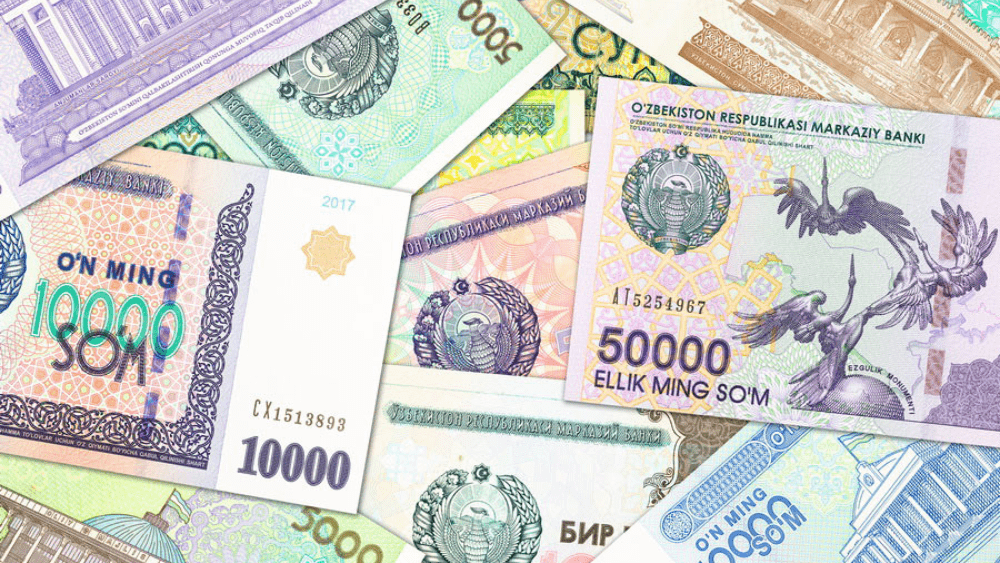
Currency and Money Management
Managing your finances efficiently while travelling in Uzbekistan involves understanding the local currency and knowing the best practices for carrying and exchanging money. Here’s a comprehensive guide to help ensure your financial dealings go smoothly during your visit.
Understanding the Local Currency
The official currency of Uzbekistan is the Uzbekistani Som (UZS). It’s important to familiarize yourself with the denominations, which include both coins and notes. Notably, the currency has undergone some inflation, so be prepared to handle large numbers.
Best Practices for Carrying and Exchanging Money
Carry a Mix of Currency:
- Cash is King: Cash dominates the market in Uzbekistan, especially in smaller cities and local bazaars. Always have a sufficient amount of local currency in small denominations to cover daily expenses.
- Keep Some USD or EUR: It’s advisable to carry some US Dollars or Euros, which can be easily exchanged across the country. These are also useful in case of emergency. You can find money changers and exchange centers around the city and markets. It’s recommended to use a currency converter app to avoid confusion due to large numbers.
Using Credit Cards:
- Limited Acceptance: Credit cards are gradually becoming more accepted in larger hotels, restaurants, and stores, especially in bigger cities like Tashkent and Samarkand. However, it’s wise not to rely solely on cards.
- ATMs: ATMs are available, particularly in major cities, and most dispense local currency. Some might offer withdrawals in USD. Make sure your bank is informed of your travel plans to avoid any blocks on your cards.
Budget Tracking:
- Monitor Your Spending: Keep track of your expenses and manage your budget accordingly. Apps that help you log expenditures can be particularly useful, especially those that work offline. I have been using TravelSpend App for many years and It is one of the best I could find.
Safety Precautions:
- Money Belt or Neck Pouch: For peace of mind, consider using a money belt or neck pouch under your clothing to keep large sums of money and your passport safe.
- Don’t Flash Your Cash: Be discreet when handling money in public areas to avoid drawing attention.
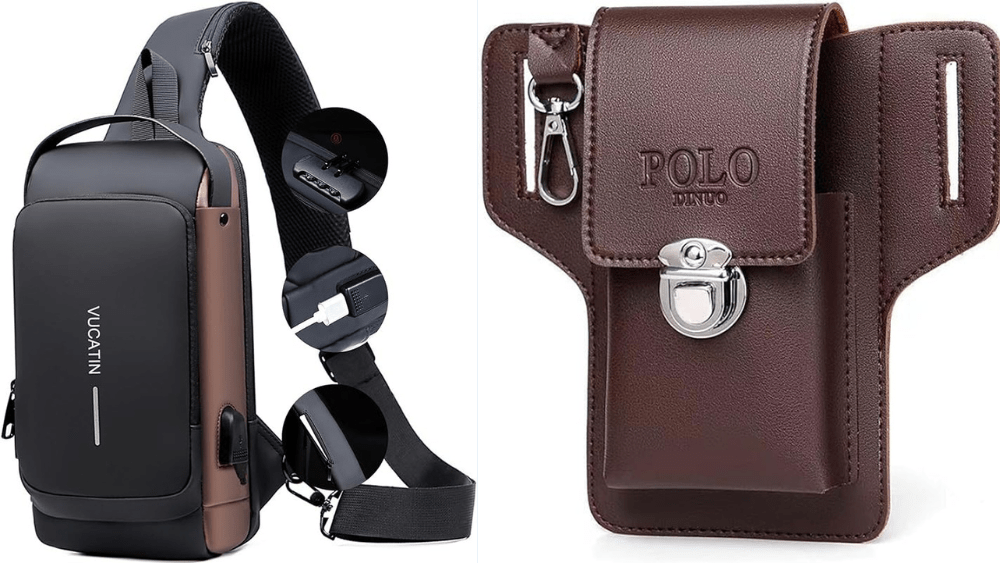
Gastronomic Delights: Must-Try Food in Uzbekistan
Exploring Uzbekistan offers not just a visual and cultural feast but also a culinary journey through some of the most aromatic and flavorful dishes in Central Asia. Here’s a guide to must-try traditional dishes and the best places to enjoy them in Tashkent and Samarkand.
List of Traditional Dishes
Plov – Uzbekistan’s national dish made from rice, carrots, onions, and meat (usually beef or lamb), cooked in a large cast-iron cauldron. Each region has its own variation of this hearty meal.
Shashlik – Skewered and grilled cubes of meat, similar to kebabs, often served with raw sliced onions and a sprinkle of vinegar.
Samsa – Baked pastry filled with meat (typically beef or lamb), onions, and spices. Vegetarian versions might include pumpkin or potatoes.
Lagman – Hand-pulled noodles served in a spicy broth with vegetables and beef or lamb.
Manti – Steamed dumplings filled with ground meat, onions, and spices, usually topped with a dollop of sour cream or yogurt.
Borsch – A beet soup that is a staple in many parts of Eastern Europe and Central Asia, often made with beef and served with sour cream.
Chuchvara – A soup with tiny dumplings filled with minced meat, similar to tortellini, but served in a clear or slightly thickened broth.
Non/Naan – Traditional bread that’s baked in a clay oven called a tandoor. It’s a staple at every meal and comes in various forms, from plain to sesame-seeded.
Shawarma – Anyone living in the Middle East knows Shawarma, but it’s a must-try in Uzbekistan.
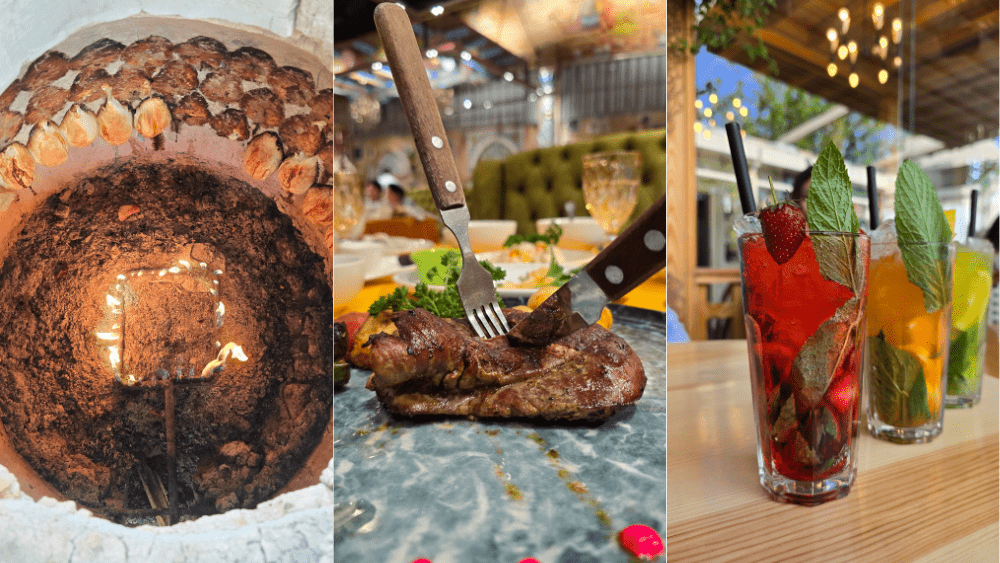
Tashkent or Samarkand Which is Better?
Both Tashkent and Samarkand offer distinct experiences. Tashkent is better for those interested in a more cosmopolitan experience with a mix of modern and Soviet-era architecture, while Samarkand is ideal for those looking to dive deep into the history and architecture of the Silk Road. Your choice may depend on what aspects of Uzbek culture you are most eager to explore.
If time allows, it’s highly recommended to visit both cities to fully appreciate the diversity of experiences Uzbekistan has to offer. Each city tells a different story of Uzbekistan’s rich tapestry of history and modernity.
Crafting the Perfect Itinerary
4 to 5 Nights in Uzbekistan Including the Train Journey
Embarking on a 4 to 5-night journey through Uzbekistan allows for a fulfilling exploration of its rich cultural heritage and stunning architectural marvels. This itinerary includes stops in Tashkent, Samarkand, and an optional visit to Bukhara, connected by scenic train rides that offer a glimpse into the landscape of Central Asia.
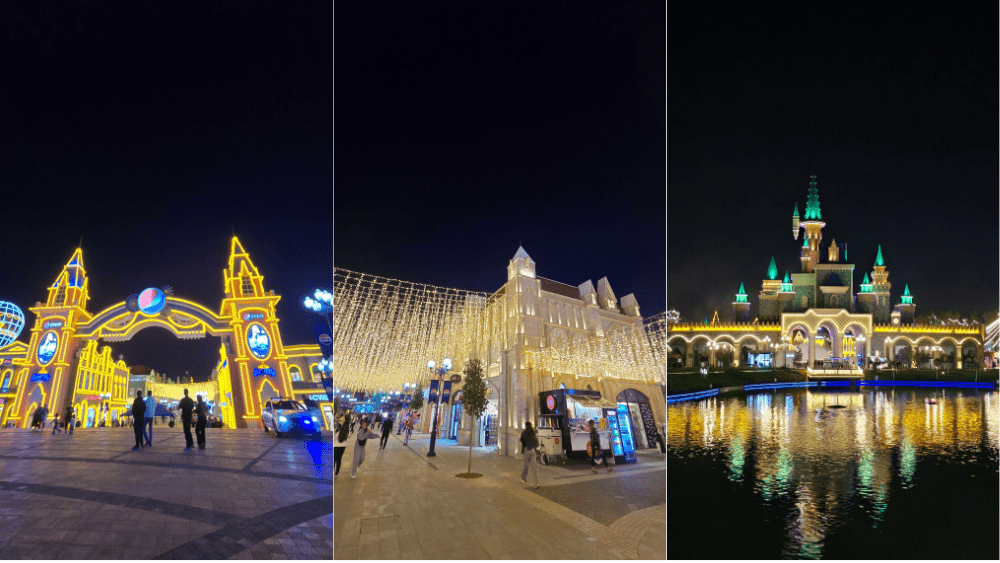
Day 1: Arrival in Tashkent
- Morning: Arrive at Tashkent International Airport. Check into your hotel and rest. Trust me you will thank me for this.
- Afternoon: Explore the Tashkent Metro, one of the most beautiful subway systems in the world. Visit Chorsu Bazaar to explore local flavors, Magic City, and enjoy delicious food.
- Evening: Dine at Plov Centre for an authentic taste of Uzbekistan’s national dish.
Day 2: Tashkent to Samarkand by Train
- Morning: Depart for Samarkand via the Afrosiyob high-speed train. The journey takes approximately 2 hours.
- Afternoon: Check into your hotel. Begin exploring Samarkand with a visit to Registan Square, the heart of the ancient city and a UNESCO World Heritage Site.
- Evening: Enjoy dinner at a local restaurant where you can try dishes like manti and lagman or just bread with tea.
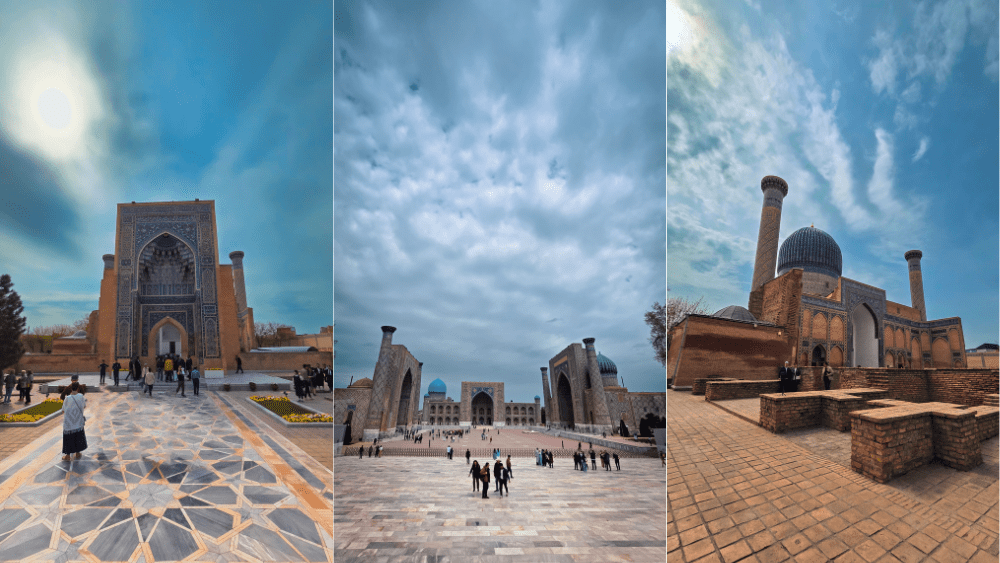
Day 3: Exploring Samarkand
- Morning: Visit Gur-e Amir, the mausoleum of Amir Timur. Continue to Bibi-Khanym Mosque and the adjacent Siab Bazaar.
- Afternoon: Explore Shah-i-Zinda necropolis, a stunning avenue of mausoleums.
- Evening: Participate in a plov cooking class followed by a meal where you enjoy the dish you prepared.
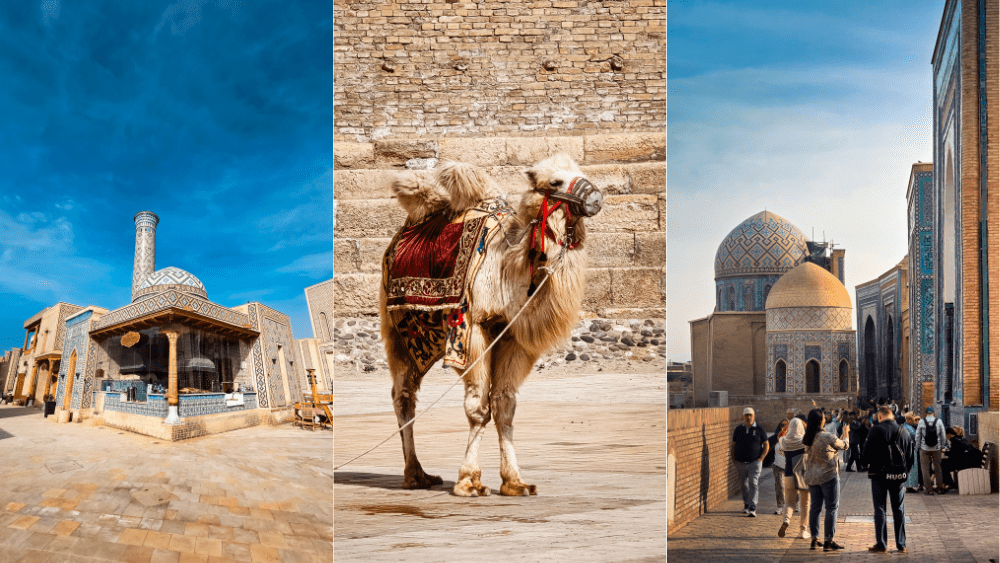
Day 4: Samarkand to Bukhara by Train
- Morning: Take an early train to Bukhara, which takes about 1.5 hours. Alternatively, enjoy a leisurely morning in Samarkand with a visit to Ulugbek’s Observatory. Alternatively, you can take a cab with a tour guide. In my case, Yousuf drove me, and it took over four hours to reach Bukhara.
- Afternoon (if in Bukhara): Check into your hotel and start exploring. Visit the Ark of Bukhara, Bolo Haouz Mosque, and the historic trading domes.
- Evening: Dine at a traditional tea house and try Bukharan pilaf.
Day 5: Return to Tashkent
- Morning: If in Bukhara, explore more of the city’s sites such as the Lyabi-Hauz complex and Chor Minor.
- Afternoon: Take the train back to Tashkent. This journey will take approximately 4 hours from Bukhara or 2-3 hours from Samarkand.
- Evening: Enjoy your last evening in Tashkent. Consider a farewell dinner at Caravan, known for its sophisticated ambiance and Uzbek cuisine.
Tips on Using Local Transportation
- Booking Train Tickets: Purchase your train tickets in advance, especially for the Afrosiyob high-speed train, as seats can sell out quickly. Tickets can be booked online or through local travel agents.
- Navigating Train Stations: Arrive at the train station at least 30 minutes before departure. Station signage is usually in both Uzbek and English, and staff are generally helpful.
- During the Journey: Enjoy the scenic views and comfortable seating. Dining cars are available on longer routes, offering snacks and beverages.
- Local Taxis: In cities, taxis are an affordable and convenient way to get around. Agree on the fare in advance to avoid any surprises.
Conclusion
Exploring Uzbekistan over the course of 4 to 5 nights offers a unique glimpse into the heart of Central Asia, where ancient history and rich cultural tapestry come alive. From the bustling markets of Tashkent to the awe-inspiring historical sites of Samarkand and the timeless streets of Bukhara, each city presents its own set of marvels that together weave an unforgettable narrative of travel and discovery.
FAQs
Here are some frequently asked questions that travelers often have when planning a trip to Uzbekistan, providing essential information to help you prepare for your journey.
1. What is the best time to visit Uzbekistan?
The best time to visit Uzbekistan is during the spring (April to June) and autumn (September to early November). These seasons offer mild weather, making it comfortable to explore the outdoor historical sites. Summers can be extremely hot, especially in cities like Bukhara and Khiva, while winters, though cold, are manageable and less crowded.
2. Do I need any vaccinations before traveling to Uzbekistan?
No specific vaccinations are required for entry into Uzbekistan, but it’s recommended to have routine vaccinations up to date, such as measles, mumps, rubella (MMR), diphtheria, tetanus, pertussis, polio, and your yearly flu shot. Hepatitis A and Typhoid vaccinations are also recommended due to the possibility of contaminated food or water.
3. Is Uzbekistan safe for solo travelers?
Yes, Uzbekistan is generally safe for solo travelers, including solo female travelers. Common sense safety precautions are advised, such as avoiding unlit areas at night and keeping valuables secure. The local people are hospitable and helpful, although it’s wise to have a basic grasp of Russian or Uzbek phrases to aid in communication.
4. Can I use my credit card in Uzbekistan?
Credit card usage is growing in Uzbekistan, particularly in major cities and tourist areas, and within international hotel chains. However, it’s advisable to carry cash, especially when shopping in local markets or dining in smaller restaurants. ATMs are available in larger cities, but ensure you inform your bank of your travel plans to avoid any issues.
5. What should I pack for a trip to Uzbekistan?
Packing for Uzbekistan should include comfortable walking shoes for exploring sites, a hat and sunscreen for protection against the sun, and layers for variable temperatures, especially in the evenings or during the cooler months. Respectful attire is recommended, particularly when visiting religious sites (shoulders and knees should be covered, and a scarf may be required for women).
6. How prevalent is English in Uzbekistan?
English is increasingly common in tourist areas, major hotels, and among younger people in larger cities. However, Russian remains the lingua franca, and knowing some basic Russian phrases can be very helpful, especially in more rural areas or when dealing with older generations. Many signages in tourist spots are also available in English.
7. Are there any cultural customs I should be aware of?
Uzbek culture values hospitality and respect. When entering a home, it is customary to remove your shoes. It is polite to accept any food or drink offered, especially tea, as this is a sign of hospitality and respect. Additionally, be mindful when taking photos; always ask for permission, particularly when photographing local people.



Comments are closed.